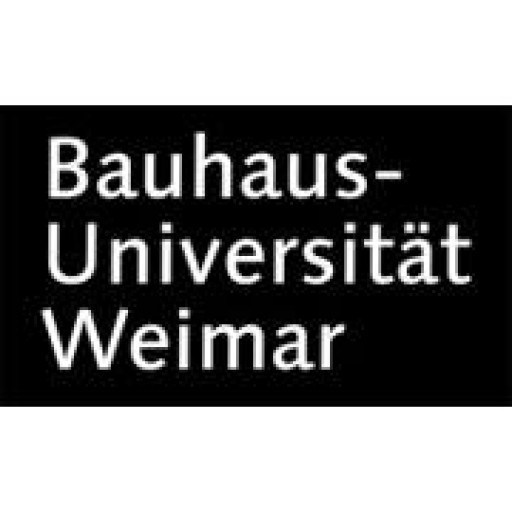Photos of university
Field of study: Natural Gas Technology
Degree level: Bachelor's Degree (Bachelor of Science)
Language of instruction: English
Duration of study: 4 years
Program format: Full-time
Program overview:
The Bachelor in Natural Gas Technology at the University of Science and Technology is a comprehensive multidisciplinary program designed to equip students with the essential skills and knowledge required for the exploration, production, processing, and transportation of natural gas. This program prepares future professionals to meet the growing global demand for clean and efficient energy sources, emphasizing sustainable practices and innovative technologies within the natural gas industry.
Course content and specialization:
Throughout the course of study, students will gain a solid foundation in core engineering principles, chemistry, geology, and environmental sciences. The curriculum includes specialized modules in reservoir engineering, drilling technologies, natural gas processing technologies, pipeline construction and maintenance, and safety management. Students will also learn about the economic and regulatory aspects of the natural gas sector, enabling them to operate effectively within the industry’s legal and economic frameworks.
Laboratory and practical training:
The program features extensive practical training through state-of-the-art laboratories, simulation exercises, and field internships. Students will have the opportunity to work with advanced equipment used in natural gas extraction and processing, developing hands-on skills crucial for their future careers. The university collaborates with industry partners and offers internship programs to provide real-world experience and to facilitate academic-industry integration.
Research and innovation:
Students are encouraged to participate in cutting-edge research projects focused on improving extraction techniques, reducing environmental impact, and developing new technologies for natural gas utilization. The program fosters critical thinking, innovation, and problem-solving skills, preparing graduates to contribute to technological advancements and sustainable energy solutions.
Career prospects:
Graduates of the Natural Gas Technology program are equipped to pursue careers in natural gas extraction and processing companies, energy consulting firms, environmental agencies, and government regulatory bodies. They may work as field engineers, plant managers, quality control specialists, or environmental compliance officers. The program also provides a strong educational foundation for those interested in advanced studies and research in energy technologies.
International environment:
Instruction is conducted entirely in English, attracting students from around the world. The program emphasizes international standards in engineering practices and energy management, preparing graduates for global career opportunities.
In summary, the Bachelor in Natural Gas Technology from the University of Science and Technology offers a rigorous, industry-oriented education in one of the most vital energy sectors today. With a focus on practical skills, innovative research, and sustainable practices, the program aims to develop highly qualified professionals capable of addressing the energy challenges of the future.
Natural Gas Technology at the University of Science and Technology offers a comprehensive curriculum designed to prepare students for a dynamic and evolving industry focused on the exploration, extraction, processing, and transportation of natural gas resources. The program provides students with solid theoretical knowledge combined with practical skills necessary to meet the technological and environmental challenges of the gas industry. Throughout the course of study, students will engage with subjects such as petroleum geology, reservoir engineering, drilling technologies, gas processing and purification, pipeline design and operation, safety management, and environmental protection. The curriculum emphasizes hands-on training through laboratory work, field practice, and internships with leading industry companies, allowing students to gain real-world experience. Special topics include natural gas liquefaction, storage, and distribution systems, as well as the latest innovations in renewable energy integration and sustainable practice in natural gas utilization. The program aims to develop highly qualified specialists capable of working in various sectors of the natural gas industry, including exploration companies, processing plants, pipeline operators, and governmental agencies. Graduates will be equipped with problem-solving skills, a good understanding of industry standards, and the ability to implement advanced technologies to improve efficiency and safety. The program also encourages research activities, enabling students to contribute to advancements in natural gas technology and its applications. Upon completion, graduates will receive a Bachelor's degree in Natural Gas Technology, opening opportunities for professional growth and leadership roles within the energy sector.
Admission requirements for the Bachelor’s program in Natural Gas Technology typically include a secondary school certificate with a strong emphasis on mathematics, physics, and chemistry. Applicants are expected to have completed subjects relevant to engineering and natural sciences, demonstrating a solid foundational knowledge necessary for advanced studies in this field. The university may also require applicants to pass entrance examinations or interviews assessing their aptitude and motivation for studying natural gas technology. Additionally, proficiency in English might be necessary if the program is conducted in English or includes international components, with proof of language proficiency such as TOEFL or IELTS scores.
Applicants generally need to submit academic transcripts, letters of recommendation, and a personal statement or motivation letter outlining their interest in natural gas technology and future career goals. Some programs also consider prior work experience or involvement in related projects as an advantage. Scholarship or financial aid applications can usually be submitted simultaneously, with criteria varying depending on the applicant’s country of origin and academic performance.
In terms of prerequisites, having a background in engineering, geosciences, or environmental sciences can be beneficial for success in the program. The university's admissions office provides detailed information on specific entry requirements and procedures, which applicants should review carefully before applying. It is advisable for prospective students to meet all prerequisites and submit complete application documents by the designated deadlines to maximize their chances of admission. The program aims to recruit motivated individuals dedicated to advancing the sustainable and efficient extraction and utilization of natural gas resources, contributing to the energy sector's development.
Financial aspects of the Bachelor’s program in Natural Gas Technology at the University of Science and Technology are structured to provide students with accessible and sustainable funding options. Tuition fees are set annually and are competitive relative to similar programs within the country. The university offers various scholarships and grants aimed at supporting talented and financially disadvantaged students, including merit-based scholarships, need-based financial aid, and special grants for research projects. Students can also explore government funding programs designed to promote higher education in technical fields, which may cover partial or full tuition costs. Additionally, part-time employment opportunities are available within the university campus and in nearby industries, allowing students to earn an income while studying. The university collaborates with local and international organizations to facilitate internships and cooperative education programs, which often include stipends and financial support, enabling students to gain practical experience without undue financial burdens.
Funding can also be supplemented through student loans, which the university helps to facilitate by providing necessary documentation and support for applicants. International students, if applicable, are advised to seek scholarships designated specifically for foreign students or explore external funding sources in their home countries. Tuition payment can generally be made in installments or as a lump sum, providing flexibility for students’ financial planning. The university’s financial office provides detailed guidance and counseling on available funding options, application procedures, and deadlines to ensure students can plan accordingly. Overall, the financial framework for the Natural Gas Technology program aims to minimize barriers to education, foster academic success, and support students throughout their studies, preparing them for professional careers in the energy sector.
The Bachelor of Science in Natural Gas Technology at the University of Science and Technology is a comprehensive undergraduate program designed to prepare students for careers in the natural gas industry, focusing on the extraction, processing, transportation, and utilization of natural gas resources. This program combines theoretical knowledge with practical skills, providing students with a strong foundation in engineering principles, chemistry, geology, and environmental science, all tailored to the specific needs of the natural gas sector. Throughout the course of study, students engage in laboratory work, field internships, and industry projects that enable them to apply learned concepts in real-world scenarios, fostering technical competence and problem-solving abilities.
The curriculum covers essential topics such as reservoir engineering, drilling technologies, gas processing methods, pipeline engineering, safety protocols, and environmental impact assessments. Special emphasis is placed on sustainable practices and the development of innovative solutions to optimize resource extraction while minimizing environmental footprints. Students are also introduced to research methods and data analysis techniques relevant to natural gas exploration and production, preparing them for advanced roles or postgraduate studies. The program aims to develop not only technical expertise but also teamwork, communication, and management skills necessary for leadership roles within the industry.
Graduates of this program are equipped to work in various sectors, including upstream exploration, midstream transportation, downstream processing, environmental management, and energy consultancy. The program maintains strong ties with industry partners, offering students opportunities for internships, cooperative education, and networking with professionals. Upon completion, graduates receive a Bachelor of Science degree, which qualifies them for entry-level positions or further specialization through master's programs. The university also emphasizes the importance of continuous learning and adaptation to emerging technologies and market trends in the rapidly evolving energy sector. Overall, the Natural Gas Technology program aims to create competent, responsible, and innovative engineers who can contribute effectively to the sustainable development of natural gas resources worldwide.










